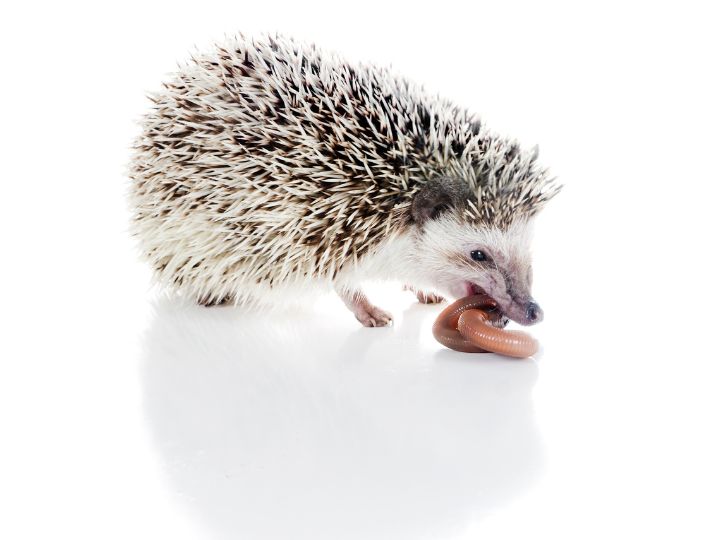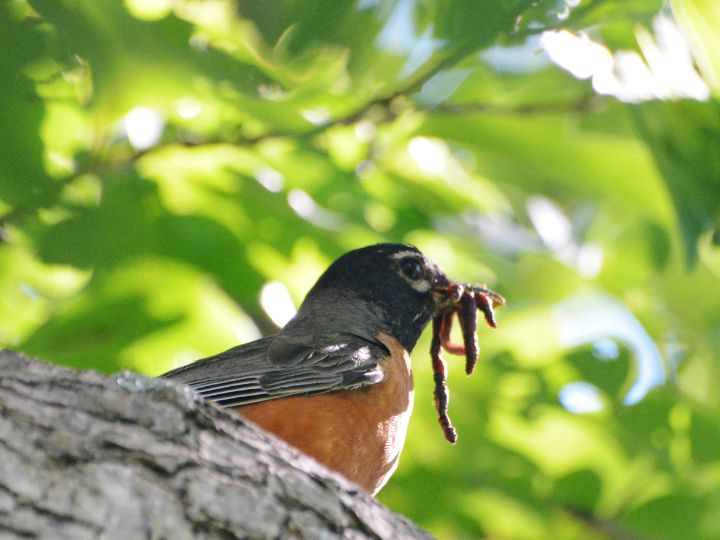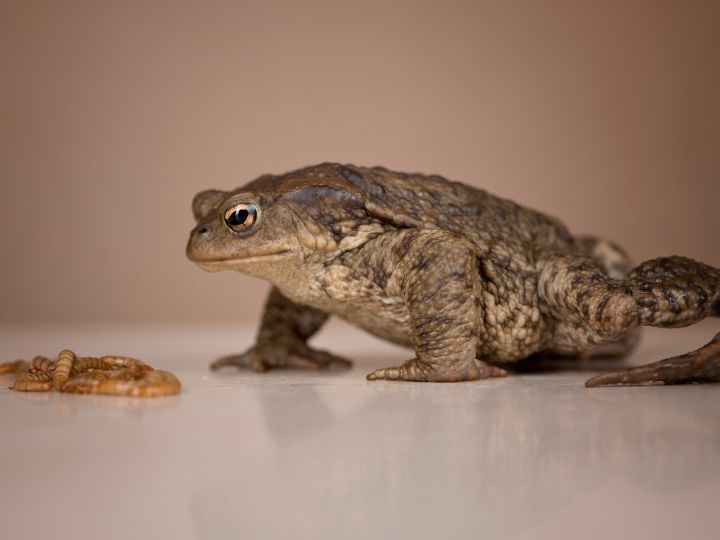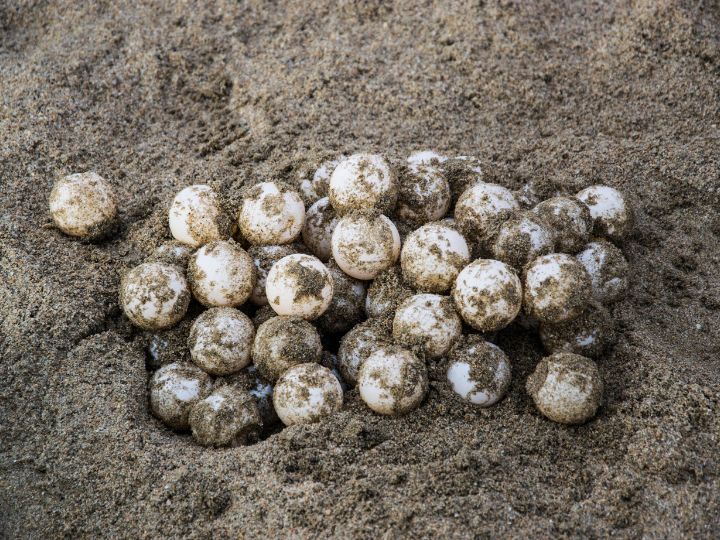Animals that spend most of their time close to the ground, such as insects, amphibians, and reptiles, often feed on worms. Small lizards, salamanders, and toads are known to eat worms and worm-like insect larvae. Ground-crawling insects, particularly ground beetles, centipedes, and flatworms, prey on worms and similar creatures. Several mammals also consume worms, such as moles, hedgehogs, and possums. Some birds, such as hawks, also feed on worms.
Worms are a common sight in the soil, and they play an essential role in the ecosystem. They help to aerate the soil, break down organic matter, and improve soil structure. However, worms are also a source of food for many animals. In this article, we will explore what animals eat worms and how they fit into the food chain.

Understanding what animals eat worms is crucial in understanding the food chain and how different organisms interact with each other. It is fascinating to see how worms, which may seem insignificant, play a vital role in the ecosystem and support the survival of other animals. In the following sections, we will explore in more detail what animals eat worms and how they fit into the food chain.
Animals that Eat Worms
Worms are a common food source for many animals. Here are some of the animals that eat worms:
Birds

Birds are known to eat worms, especially during breeding season when they need to feed their young. Some bird species that eat worms include:
- Robins
- Thrushes
- Blackbirds
- Starlings
- Grackles
- Bluebirds
Mammals
Mammals that eat worms usually dig them up from the soil. Some of these mammals include:
- Moles
- Shrews
- Hedgehogs
- Skunks
- Foxes
- Rats
Amphibians

Amphibians, such as frogs and toads, are also known to eat worms. Here are some of the amphibians that eat worms:
- American toads
- Bullfrogs
- Gray tree frogs
- Spring peepers
Reptiles
Reptiles are also known to eat worms, especially those that live in the soil. Some of these reptiles include:
- Snakes
- Lizards
- Turtles
In conclusion, worms are an important food source for many animals, and they play a vital role in the food chain.
Worm-eating Strategies
Hunting
Some animals have developed hunting strategies to catch worms. For example, birds like robins and woodcocks use their sharp beaks to probe the soil and pull out worms. Certain species of fish, like trout and bass, also hunt for worms in the water by using their keen sense of smell to locate them.
Digging
Other animals have adapted to digging in the soil to find worms. Some species of moles and shrews have strong, curved claws that allow them to burrow through the dirt and locate worms. Certain types of beetles and ants also dig through the soil to find their prey.
Fishing
Finally, some animals have developed a fishing strategy to catch worms. Herons and other wading birds will stand in shallow water and wait for worms to emerge from the mud. Once they spot a worm, they will quickly grab it with their beaks. Certain species of fish, like catfish and bullheads, will also use their barbels to sense worms in the mud and suck them up like a straw.
Overall, animals have developed a variety of strategies to catch worms, depending on their habitat and physical adaptations. By using their natural instincts and specialized body parts, they are able to successfully hunt, dig, or fish for this common prey.
| Hunting Animals | Digging Animals | Fishing Animals |
| Birds (robins, woodcocks) | Moles | Herons |
| Fish (trout, bass) | Shrews | Catfish |
| Beetles | Bullheads | |
| Ants |
Benefits of Worms in Animal Diets
Worms are a nutritious and beneficial addition to the diets of many animals. Here are some of the benefits that worms can provide to animals:
Nutritional Value
Worms are a great source of protein and other essential nutrients for many animals. They contain high levels of amino acids, which are the building blocks of protein. In addition, worms are rich in vitamins and minerals such as calcium, iron, and potassium.
Gut Health
Eating worms can also aid in the digestion of other foods. The high fiber content of worms can help to regulate the digestive system and prevent constipation. In addition, worms are a natural source of beneficial bacteria, which can help to maintain a healthy gut microbiome.
Behavioral Benefits
Eating worms can provide animals with a natural form of enrichment. Hunting and foraging for worms can help to stimulate the natural instincts of many animals, including birds and reptiles. In addition, the act of eating worms can help to reduce stress and anxiety in some animals.
Overall, worms can provide many benefits to the diets and health of animals. However, it is important to ensure that worms are safe and appropriate for the specific animal in question. Consult with a veterinarian or animal nutrition expert before adding worms to an animal’s diet.
Frequently Asked Questions
Becky is a fervent wildlife enthusiast and pet care expert with a diploma in canine nutrition. Her love for animals stretches beyond the domestic, embracing the wild tapestry of global fauna. With over a decade of experience in animal welfare, Becky lends her expertise to OutlandishOwl through insightful articles, captivating wildlife information, and invaluable guidance on pet nutrition. Her work embodies a deep commitment to understanding the intricate lives of animals and a passion for educating others on sustaining natural habitats. Becky's hands-on conservation efforts and her knack for translating complex dietary science into practical pet feeding tips make her an indispensable voice for creatures great and small.




